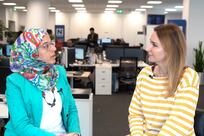
Hello there,
Are we moving from the Information Age to the Intelligence Age? In Riyadh during the World Economic Forum's special meeting on global collaboration, growth and energy for development, that idea was prevalent.
“We are not at a tipping point, but a turning point in humanity,” said Abdullah Al Swaha, Saudi Arabia's Minister of Communications and Information Technology during one of the opening sessions, titled AI, productivity, work: can we have it all?
“We're shifting from the Industrial Revolution to the Intelligence Revolution,” he added, pointing to the propulsion of advancements in AI, quantum computing and high-speed data networks.
“It's all about achieving co-intelligence, how humans and machines can co-exist within this artificial intelligence era,” said Mr Al Swaha.
Indeed, all these technological advancement are creating a recipe for change, and it's the sort of change we need to monitor in real-time.
That's why Future Beat exists, and we're thrilled to show you a glimpse of what all that change might mean.
The Big Story
Soaring aspirations
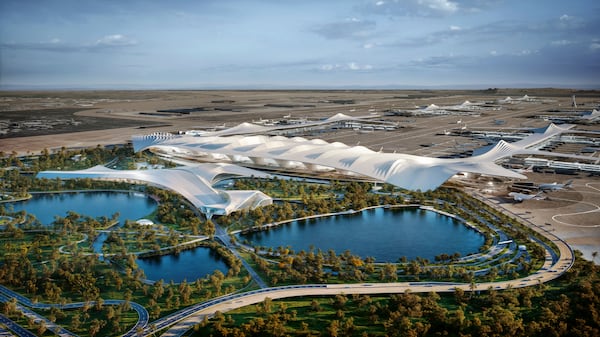
In brief | This week, Dubai, already a pace-setter for air-travel innovation, approved designs for a new passenger terminal at Al Maktoum International Airport and began construction at a cost of Dh128 billion ($34.8 billion) as the emirate boosts airport capacity to meet growing travel demand.
Once complete, Al Maktoum International Airport will have “the world's largest capacity”, reaching up to 260 million passengers.
It will be five times the size of the current Dubai International Airport, which is currently ranked the top globally for international passenger traffic.
Why it matters | Airports are more than just brick and mortar places that facilitate transportation. They're hubs of activity that show how humans push the envelope on technology, travel and endless possibilities.
It wasn't too long ago that many were predicting that airports and the economic prosperity they often fuel would be in the doldrums for quite some time due to the pandemic, but airports and travel have quickly bounced back.
In Dubai in particular, where aviation is already the heart of economic prosperity, word of the new terminal boosted hopes for property values and demand in Dubai South.
Airports also have a tendency to fuel new ideas as well. So, it's no surprise that there's already talk about the new terminal using cutting-edge aviation technology from AI to electric aircraft to help to reimagine passenger journeys.
Quoted | “Airports have a habit of legacy processes but we're determined to engineer this out. There will be huge investments in automation to make the customer service ethos better and to improve the quality of what we deliver. We've only scratched the service of what AI will deliver in this”
– Paul Griffiths, chief executive of Dubai Airports
Future in focus
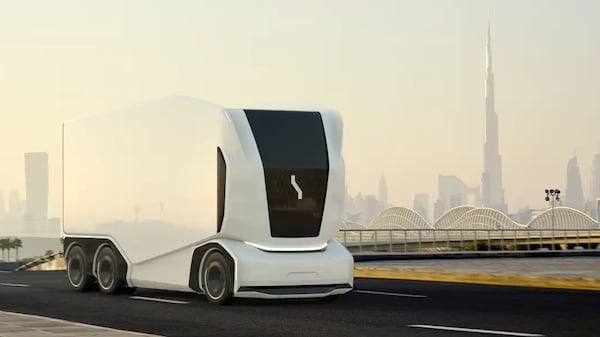
Sustainable shipping | Why the electric freight sector is turning to the Middle East
The right time | How Microsoft's billion-dollar bet on G42 spotlights the UAE's AI ascension
Expert-level knowledge | AI is already outperforming doctors, with more advancements expected
Optimistic note | IMF managing director Kristalina Georgieva reflects on technological transformation throughout the Middle East, along with challenges that remain
Predicting the future: Signal or noise?
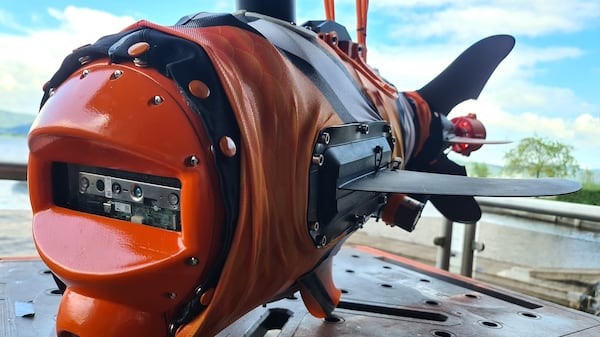
Aquaai's robots look like fish and swim like fish, but they also carry a payload of cameras and sensors that the company says could hold the key to providing better data on the health of oceans, rivers and streams.
The company says the same technology, in turn, could help propel the growth of businesses and the economy.
This is a signal: The aspirations of Aquaai perfectly illustrate the ideas behind a circular economy. The robots are made from recycled material, they operate in a way that's not disruptive for the underwater world and – perhaps most importantly – they're designed to monitor the health and quality of the waters we all need to survive.
It's not a novelty product – far from it. It's a solution that will likely be imitated throughout the nature and climate-tech entrepreneurial sectors, seeking to make something that ratchets up our wisdom, while also minimising our footprint.
In case you missed it
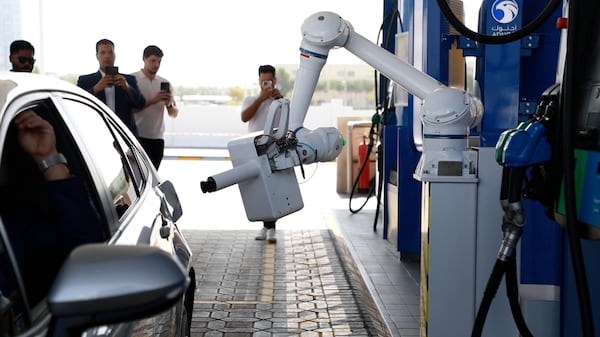
Adnoc Distribution's AI-powered robotic pump attendant turns heads
Opinion: It's 2024, why can't most software handle non-English names?
How Saudi Arabia plans to bolster its space sector credentials
Scientists have created a new material that could suck carbon out of atmosphere faster than trees
Can AI replace your tax specialist?
Where will electric vehicles be in 2030? Here's what one auto executive has to say

